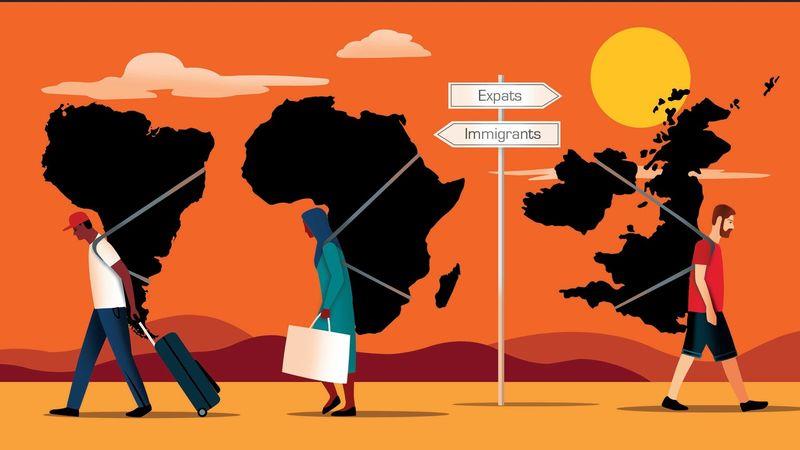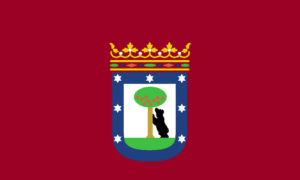Am I an expat? Am I an immigrant? Or have I just fallen between the cracks?

This January marks my fourth year in Lisbon. Those four years witnessed some of the biggest changes in my life in terms of the way I think and do stuff. I suppose I have done much more growing up in those four years than I ever did before.
For more than two years, I have been writing here at Dispatches about expat life while I do not really know to what extent I have been an expat myself! I have only started questioning this fact as I approach the end of my fourth year. The reason I questioned whether I was an expat or not is how much translation inside my own head – as well as for others – I find myself doing regularly. By translation, I don’t mean simply translating from one language into another. I mean, regardless of language barriers, translating my own cultural background into something intelligible for others.
Yes, it is that strange – this is the kind of translation I have experienced the most. I felt that the “expats” I know needed to engage less with this “translation” and hence my doubts about my expat status arose.
I discovered by talking to others that people like me – young Egyptians who believed in the Revolution of January 2011, who also had their dreams shattered, who no longer fit in mentally and who left Egypt for the aforementioned reasons – are in a constant process of translation.
While this gives you quite a rich, enviable life, translation also comes at a cost. Something is compromised when you translate who, what and why you are. You have to consciously live through many incomplete versions of yourself.
Translation: Not just explaining who I am, but justifying in the European context
Even though I share a certain affinity with Europe as well as being alienated, in some ways, from my own background, I still feel burdened with “over-translation.” It does not only mean that I have to explain things, but it means that I also have to justify them. Then, I need to harmonize them.
What I mean is that my very culturally specific background (which shapes my views, behaviors and attitudes) needs to fit within the European context I inhabit. In turn, I need to make my European context make sense for me.
I noticed that those who fit the idea of an “immigrant” seem to be dragging heavy baggage: baggage of not making much sense for others and of making themselves understood the way they are or for the way they do things.
The strange part is that I recognized this heavy baggage when I started navigating my way through my European life with all its people, institutions and norms which – in their turn – have a lighter and/or different baggage.
Back home I had to navigate my way in life with the same heavy baggage – no question about that. But my baggage was similar to everyone else’s in kind and size. That is the difference between immigrants and expats. Immigrants come with baggage, quite heavy and oddly shaped – which they need to translate. Expats are cool, well- travelled people while immigrants are not where they are supposed to be.
There is a sense that immigrants are “taking what is not theirs, while expats are “giving back” – the irony!
However, I still wonder if I am one to complain about having to translate and compromise. After all, I come from a society where gaps between the poor, the middle-class and the rich are quite big. Accordingly, other gaps come with level of education. And even bigger gaps emerge with denouncing some of the prevalent conservative beliefs.
Shouldn’t immigrants, who can’t speak the language, cleaning toilets on less than the minimum wage be
more concerned about all the compromise they have to make? Can you be a representative sample when you know that you represent no one but your bubble (and even your bubble might beg to differ on that).
On the other hand, I do not really see how I am fully in that bubble when I can feel the weight of the baggage I am dragging around.
Some of the examples of stuff in this baggage would be:
• the way I plan my future,
• the stress that comes with a sense of responsibility towards my family (common in Middle Eastern cultures),
• the kind of adolescence and early adulthood we all experienced,
• the effort needed to “undo” certain things (such as my formal education in Egypt),
• and the effort needed to “do” others instead (acquire knowledge in a tremendously different way)- all this while starting in a new place from scratch or a little bit below scratch, etc.
Aggressive? Or brave?
A more specific example may be how I have been often described positively, in some situations, as being outspoken or brave as well as having been described negatively as aggressive in others. Growing up in a place where avoiding conflict is not an option, you no longer see conflict as a problem per se. It is part of life and of how things are done.
The same mechanism which made me hold a woman’s arm in the metro as it was falling on her 5-year-old-daughter’s body to stop her from severely hitting the traumatized little girl, while other passengers said nothing, is the one which makes me call a waiter out on terrible customer service.
While the first may be seen as heroic (and a bit crazy), the latter comes across as looking for trouble.
Another layer associated with this behavior is having grown up as a feminist in an Arab country. In this instance, you do not really mix and match your conflicts. You spend years fighting for basic rights. Therefore, you can’t really trim and tailor where you are rough around the edges. Being rough around the edges is how some of us women managed to navigate their way in life.
Years of cultivating resilience and strength had to be spent.
Am I an expat? Am I an immigrant? Or have I just fallen between the cracks?

About the author:
Sarah Nagaty is a PhD researcher of cultural studies in Lisbon. She’s lived in Portugal for three years.
As a student of cultural studies, Sarah is drawn to what connects people from different backgrounds to new cultures and places, how they relate to their new surroundings and what kinds of activities they could engage with in their new hometowns.
See all of Sarah’s Dispatches posts here.
See Dispatches’ Lisbon story archive here.
Sarah Nagaty has a PhD in cultural studies, She’s lived in Portugal for six years.
As a student of cultural studies, Sarah is drawn to what connects people from different backgrounds to new cultures and places, how they relate to their new surroundings and what kind of activities they could engage with in their new hometowns.















